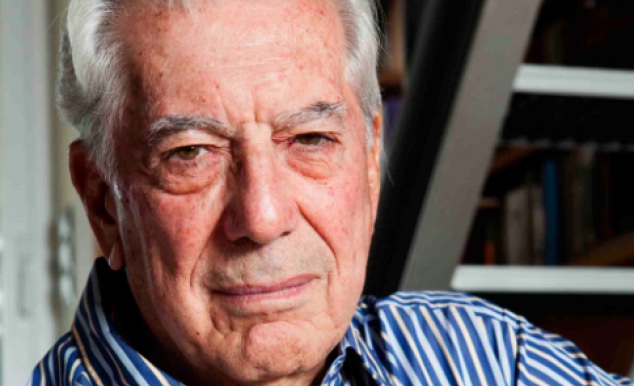El héroe discreto, Mario Vargas Llosa’s first novel after being awarded the Nobel Prize, will be available in bookstores nationwide this month.
As in his best works, the author of The Feast of the Goat (La Fiesta del Chivo), The Way to Paradise (El Paraiso en la otra esquina), The Bad Girl (Travesuras de la nina mala) and The Dream of the Celt (El sueno del celta), once again touches upon the question of human endurance before power.
El heroe discreto simultaneously recounts the life of two very different men. Felicito Yanaque is a small-business owner from Piura who is being blackmailed. Ismael Carrera is a successful businessman from Lima who is plotting a shocking reprisal against his two good-for-nothing sons who would like to see him dead. In their own way, both are quiet rebels trying to take charge of their own destinies: While Ismael defies every convention of his social class, Felicito uses a few vital maxims as a foothold against blackmail. While they cannot be viewed as avenging angels, both soar high above society’s narrow-mindedness to lead their lives according to their dreams and ideals. In this humorously melodramatic account, which takes place in the booming Peru of today, Piura and Lima become imagined territories inhabited by many of Vargas Llosa’s beloved characters
Mario Vargas Llosa, Nobel Prize in Literature 2010, was born in Arequipa, Peru in 1936. His literary career attained recognition with the publication of The Time of the Hero (La ciudad y los perros) Biblioteca Breve Prize of 1962 and Premio de la Critica 1963. Published in 1965, his second novel, The Green House (La casa verde), won the Premio de la Critica and the Romulo Gallegos International Prize. Since then, he has published the plays La senorita de Tacna, Kathie y el hipopotamo, La Chunga, El loco de los balcones, Ojos bonitos, cuadros feos, and Las mil noches y una noche); the essays The Perpetual Orgy: Flaubert and Madame Bovary (La orgia perpetua), La verdad de las mentiras, The Temptation of the Impossible (La tentacion de lo imposible), El viaje a la ficcion, and La civilizacion del espectáculo; the memoirs A Fish in the Water (El pez en el agua); short stories The Cubs (Los cachorros); and the novels Conversation in the Cathedral (Conversacion en La Catedral), Captain Pantoja and the Special Service (Pantaleon y las visitadoras), Aunt Julia and the Scriptwriter (La tia Julia y el escribidor), The War of the End of the World (La guerra del fin del mundo), The Real Life of Alejandro Mayta (Historia de Mayta), Who Killed Palomino Molero? (Quien mato a Palomino Molero?), The Storyteller (El hablador), In Praise of the Stepmother (Elogio de la madrastra), Death in the Andes (Lituma en los Andes), The Notebooks of Don Rigoberto (Los cuadernos de don Rigoberto), The Feast of the Goat (La Fiesta del Chivo), The Way to Paradise (El Paraiso en la otra esquina), The Bad Girl (Travesuras de la nina mala), andThe Dream of the Celt (El sueno del celta).
